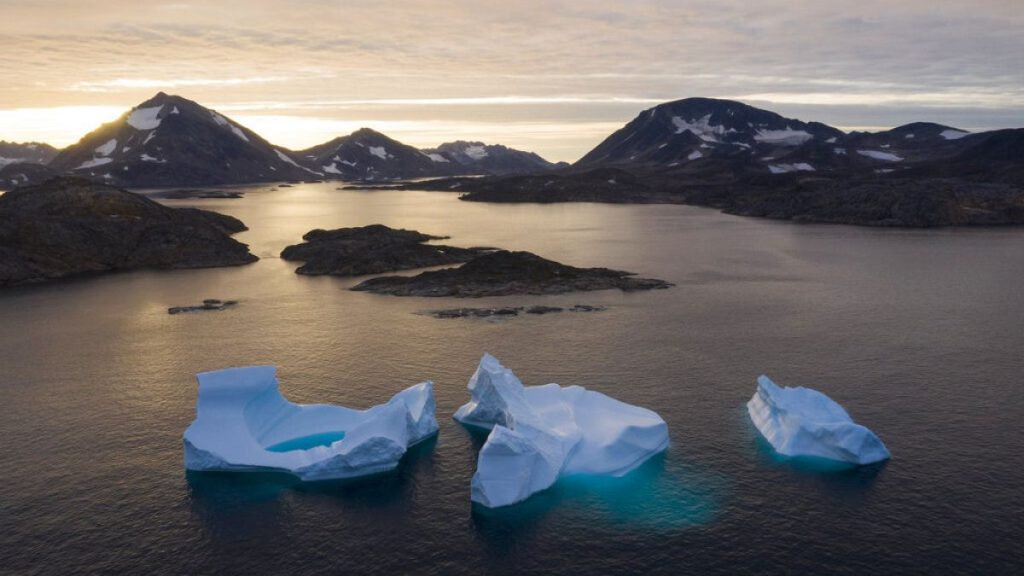Greenland, a self-governing territory within the Kingdom of Denmark, is seeking to leverage its vast reserves of critical raw materials to forge stronger partnerships, particularly with the European Union, while navigating complex geopolitical interests involving the United States, Russia, and China. The island nation, rich in minerals deemed essential for the burgeoning clean energy sector, aims to break free from dependence on China, the current dominant player in the rare earths market. Aaja Chemnitz, a member of the Danish parliament representing Greenland’s pro-independence Inuit Ataqatigiit (IA) party, emphasizes the strategic importance of Greenland’s resources, highlighting that the island holds 73% of the rare earths required by the EU. She advocates for greater EU involvement in developing Greenland’s rare earth sector, presenting it as an opportunity to secure a reliable supply chain and bolster European green technology industries.
Chemnitz’s call for increased EU engagement extends beyond economic cooperation. She emphasizes the need for a more comprehensive partnership encompassing defense and security, especially in light of heightened geopolitical tensions in the Arctic region. The IA party is wary of Russia’s growing influence and concerned by past expressions of interest in Greenland from former US President Donald Trump, viewing such overtures as potentially destabilizing. Chemnitz stresses the importance of respectful and collaborative approaches, emphasizing that Greenland seeks alliances based on mutual benefit rather than coercion or threats. She advocates for specific cooperation with the US, the EU, and Denmark in areas such as critical raw materials, tourism, education, and defense.
Greenland finds itself at a crucial juncture, needing to strategically balance its desire for greater autonomy with the practicalities of its current political status and the need for external partners. The island’s unique geographical location, offering the shortest sea route between North America and Europe, amplifies its strategic significance, attracting the attention of global powers. The United States, in particular, has expressed strong interest in bolstering its military presence in Greenland, seeking to strengthen its defense capabilities and enhance its early warning systems. However, Greenland’s government, led by Prime Minister Mute Egede of the IA party, asserts its right to self-determination and insists on engaging with international partners on its own terms.
Egede’s government has made clear its aspiration for eventual independence from Denmark, although the path towards that goal remains complex. While a referendum on independence is a possibility under Greenlandic law, it is viewed as a long-term objective rather than an immediate priority. The focus, for now, is on diversifying Greenland’s partnerships, strengthening its economy, and building the capacity to function as an independent nation. Chemnitz underscores the importance of focusing on the upcoming parliamentary elections and ensuring that external pressures do not unduly influence the democratic process. She asserts that decisions regarding Greenland’s future belong solely to the Greenlandic people.
The pursuit of greater autonomy and economic diversification necessitates navigating a complex web of international relations. Greenland seeks to leverage its resource wealth to attract investment and establish itself as a key player in the global transition to green energy. This involves balancing the interests of various actors, including Denmark, the EU, the US, and potentially other nations such as China, while maintaining a firm commitment to safeguarding Greenlandic interests and preserving its unique culture and identity. The island government’s careful approach highlights the delicate balance required to achieve its long-term goals while respecting existing political realities and ensuring a stable and prosperous future for its people.
In essence, Greenland is seeking to forge its own path forward, leveraging its strategic resources and geographic importance to secure a future defined by self-determination and economic prosperity. This journey involves navigating complex geopolitical dynamics, fostering strategic partnerships, and building the foundations for a potential future as an independent nation. The island’s leaders are acutely aware of the challenges and opportunities presented by their unique position, and are committed to ensuring that decisions regarding Greenland’s future are made by and for the Greenlandic people. This careful and deliberate approach underlines the importance of balancing internal ambitions with external realities in the pursuit of a sustainable and prosperous future for Greenland.

